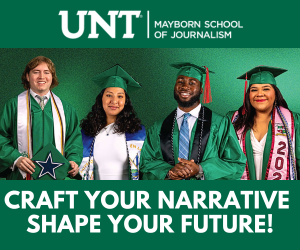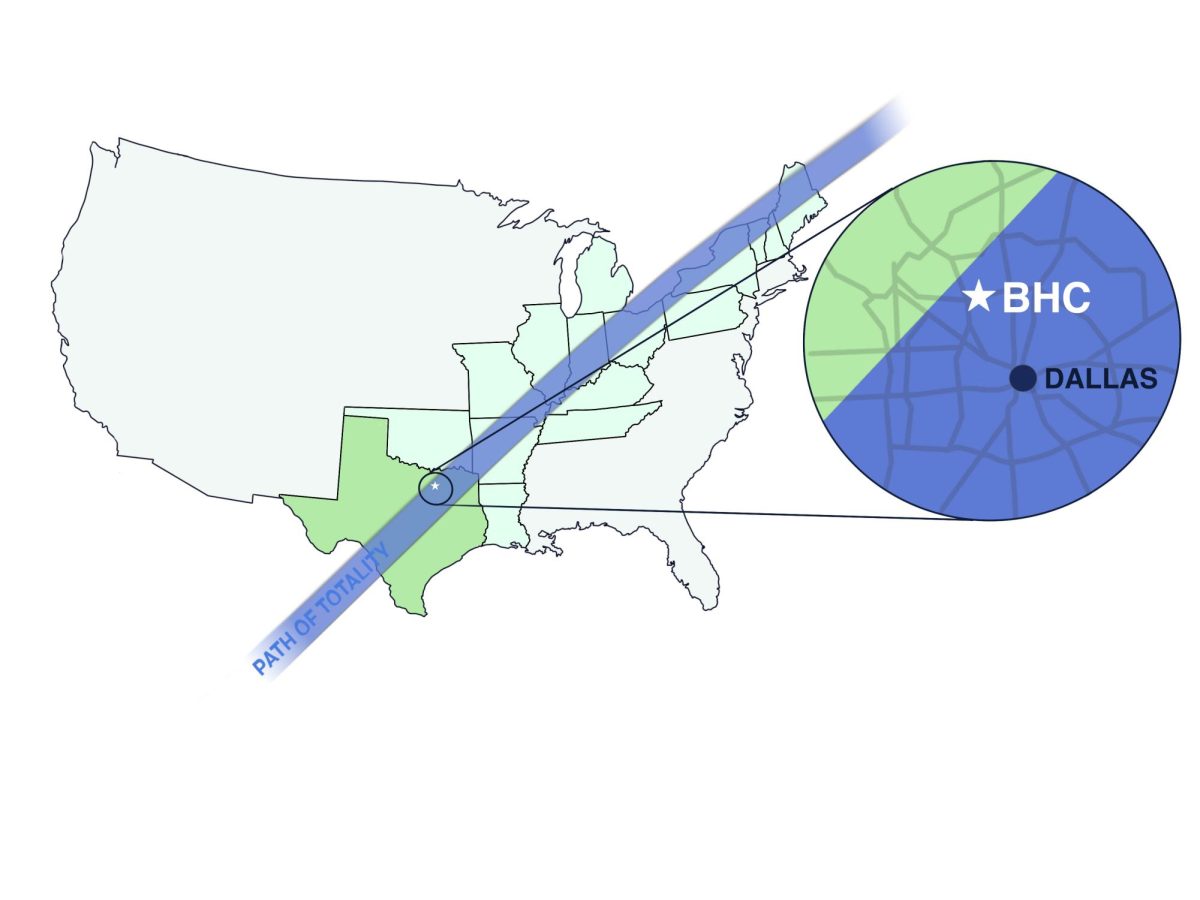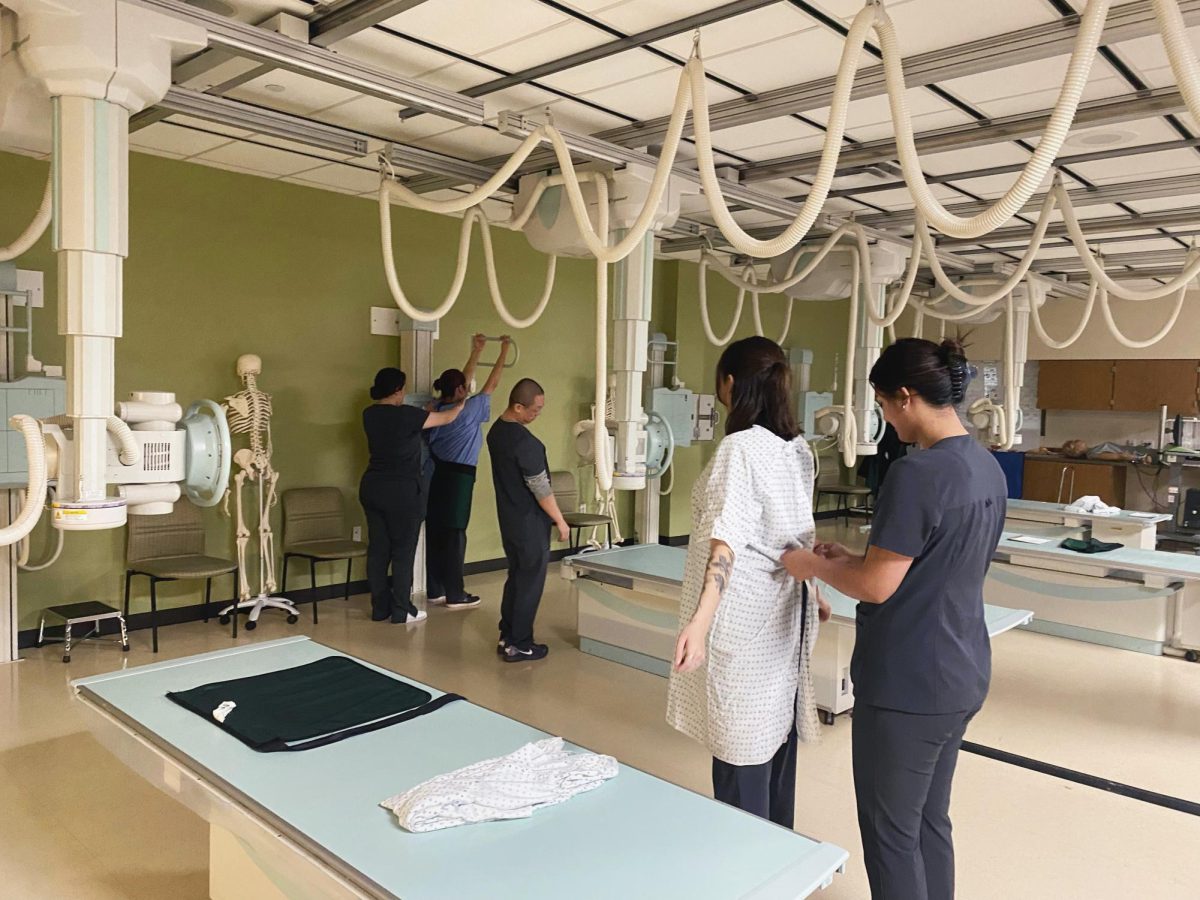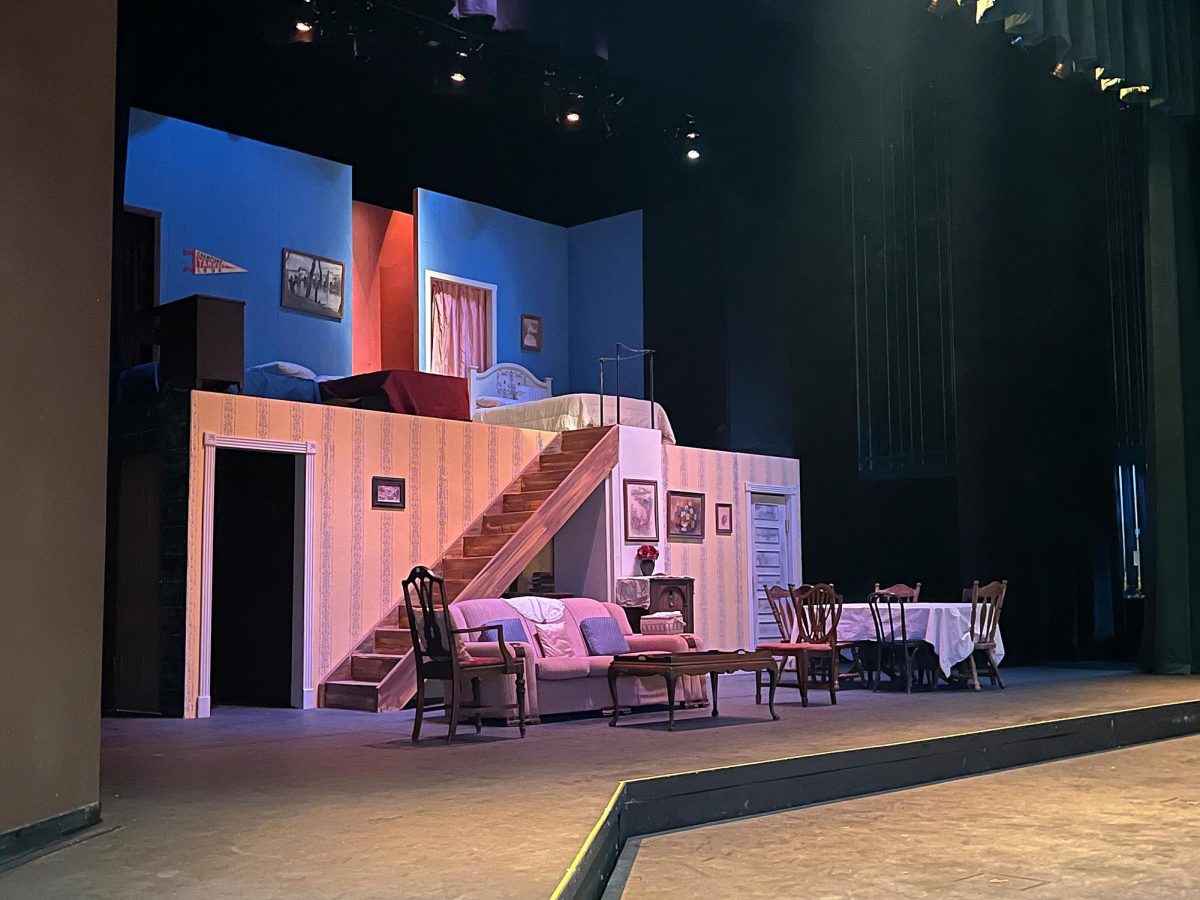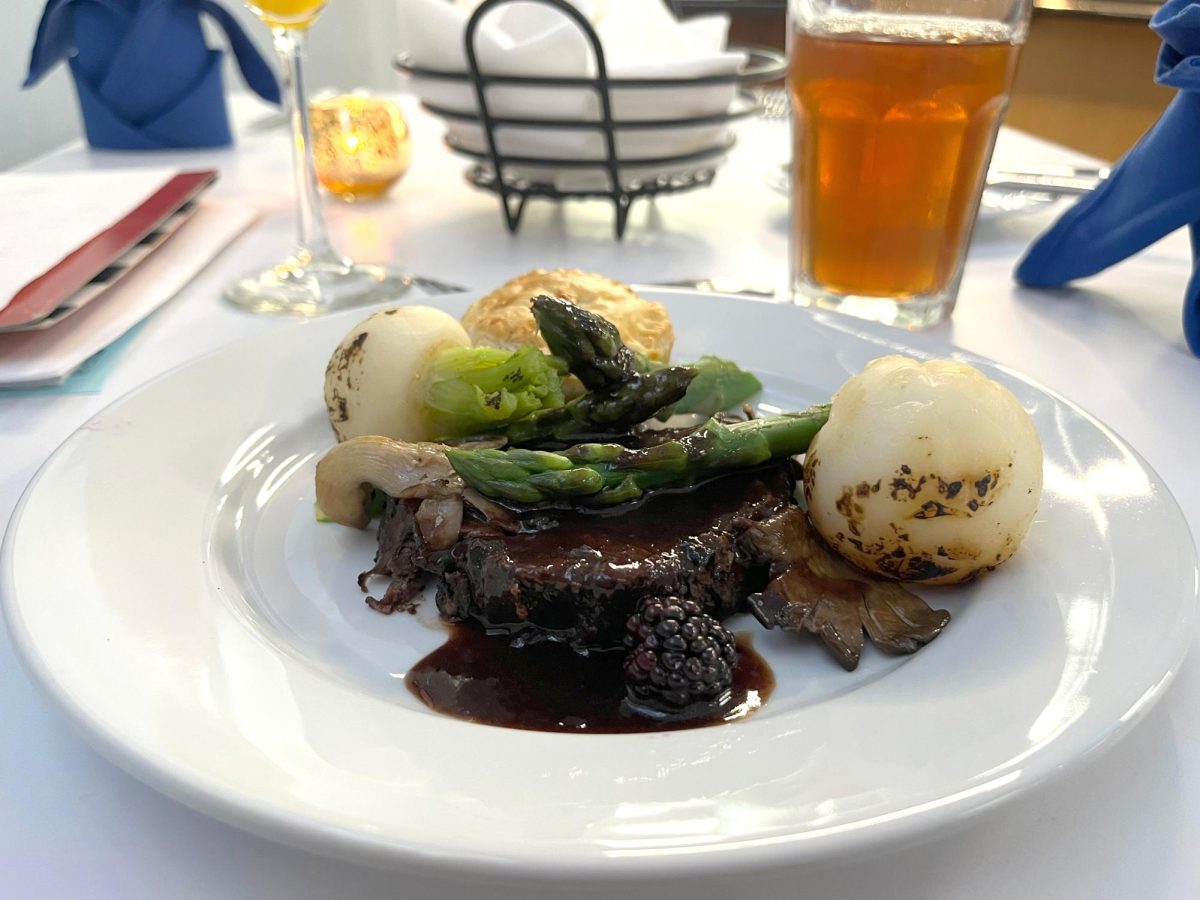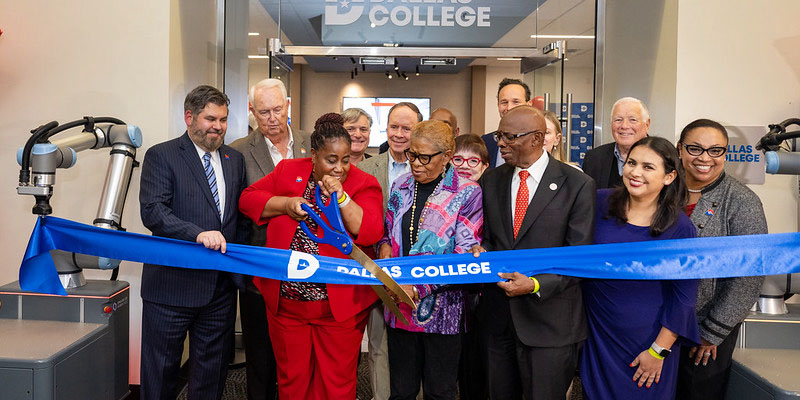Rajiv Chandrasekaran, author of ‘For Love of Country,’ speaks at Brookhaven College.
By Jubenal Aguilar
Editor-in-Chief
[email protected]
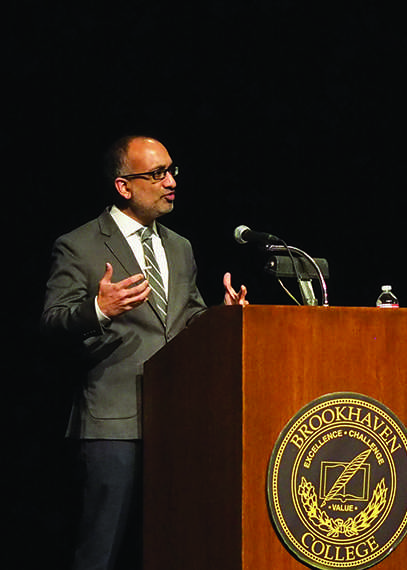
Less than 1 percent of the U.S. population has served in the military abroad since Sept. 11, 2001. Taking into account their direct family members, it is still less than 5 percent of the population, Rajiv Chandrasekaran, Starbucks Coffee senior vice president of public affairs, said.
“Most Americans have no skin in the game,” Chandrasekaran said.
Those numbers are in contrast to the time after World War II veterans returned home. Chandrasekaran said: “[In] almost every household in America, there was someone who had served – a father, a son, a brother, an uncle – so there was a shared common understanding of who our veterans were and what they had to offer now that they were back home. We don’t have that today.”
Chandrasekaran, a former senior correspondent and associate editor at The Washington Post and co-author of “For Love of Country,” spoke to Brookhaven College students, staff and faculty Jan. 30 in the Performance Hall during the first Open Book Project event of Spring 2018.
While at The Washington Post, Chandrasekaran served as the newspaper’s bureau chief in Baghdad, Cairo and Southeast Asia, according to his biography in the book. He covered the war in Afghanistan for a decade.
VOLUNTEERS
Chandrasekaran said the lack of a draft and reliance on volunteers is a major reason a divide between the military and civilian populations of the U.S. exists. “It’s a system that’s provided us with the best trained, most disciplined military in the world,” Chandrasekaran said. “And even during the most difficult periods of the Iraq war, there was never a shortage of young men and women who were willing to join.”
The reliance on volunteers has led many Americans to pay scant attention to the sacrifice of our service members, Chandrasekaran said. “We let them protect us, yet we go on with life as usual,” he said. “Political leaders have encouraged us to do so. [And] television networks, for the most part, have turned their attention elsewhere.”
RETURN HOME
Chandrasekaran said more than 2 million post-9/11 veterans have already taken off their uniforms and entered civilian life, with another million to follow in the next few years.
This has caused the next phase in the first U.S. conflicts of the century to shift to the home front, Chandrasekaran said. Returning veterans are finding it difficult to connect to the nation they swore to protect.
According to a nationally representative survey among Iraq and Afghanistan war veterans conducted by The Washington Post and Kaiser Family Foundation in 2014, 55 percent of responders felt disconnected from civilian life in America.
VETERAN NEEDS
“They deserve to enter a society that welcomes them with an appreciation and an understanding of their sacrifice,” Chandrasekaran said.
“Our veterans don’t need care packages and quilts,” Chandrasekaran said. “They need a nation to understand the skills and values and discipline they’ve acquired. And the assistance some of them still require. … They need a country that feels connected to them.”
Nancy Barlow, an English professor, said, “It seems to me that there is a great dichotomy between the respect for the institution of the military and the way returning veterans are treated.”
Chandrasekaran agreed with Barlow and said we have a high regard for the military, but hesitate to hire them or become skeptical when they move next door.
BROKEN
Veterans are often portrayed as people who are broken, damaged goods or ticking time bombs. Disproportionate attention is given to acts of violence that involve a perpetrator who is a service member. “Our veterans aren’t out there committing crime at any higher rate than the average American population as a whole,” Chandrasekaran said.
This negative image creates a huge economic cost to our country and has a real national security implication, Chandrasekaran said. “If young smart people … don’t see that there is a good future to be had after you’ve served in the military, [they’re] not going to want to serve,” he said. “That means that we are not getting our smartest people joining the military.”
DOING RIGHT
Chandrasekaran said the Greatest Generation in our country take comfort in the knowledge they achieved a clear, cut victory in World War II. However, the Iraq and Afghanistan wars will not have a satisfactory outcome to many, including those who fought. “That only exacerbates the challenge that some veterans will face as they seek to make sense of their years in combat,” Chandrasekaran said. “We must remember that those that who deployed then were not the ones who decided to launch them.”
Chandrasekaran said, “They followed orders from civilian leaders of both parties, nobly and unflinchingly.”
Chandrasekaran said: “To do right by our veterans, to recognize their value to our society and to fulfill our solemn obligation to those who volunteered to protect the rest of us, we first have to understand what they have accomplished and what they offer our nation. Then only can we truly begin to have their six.”

